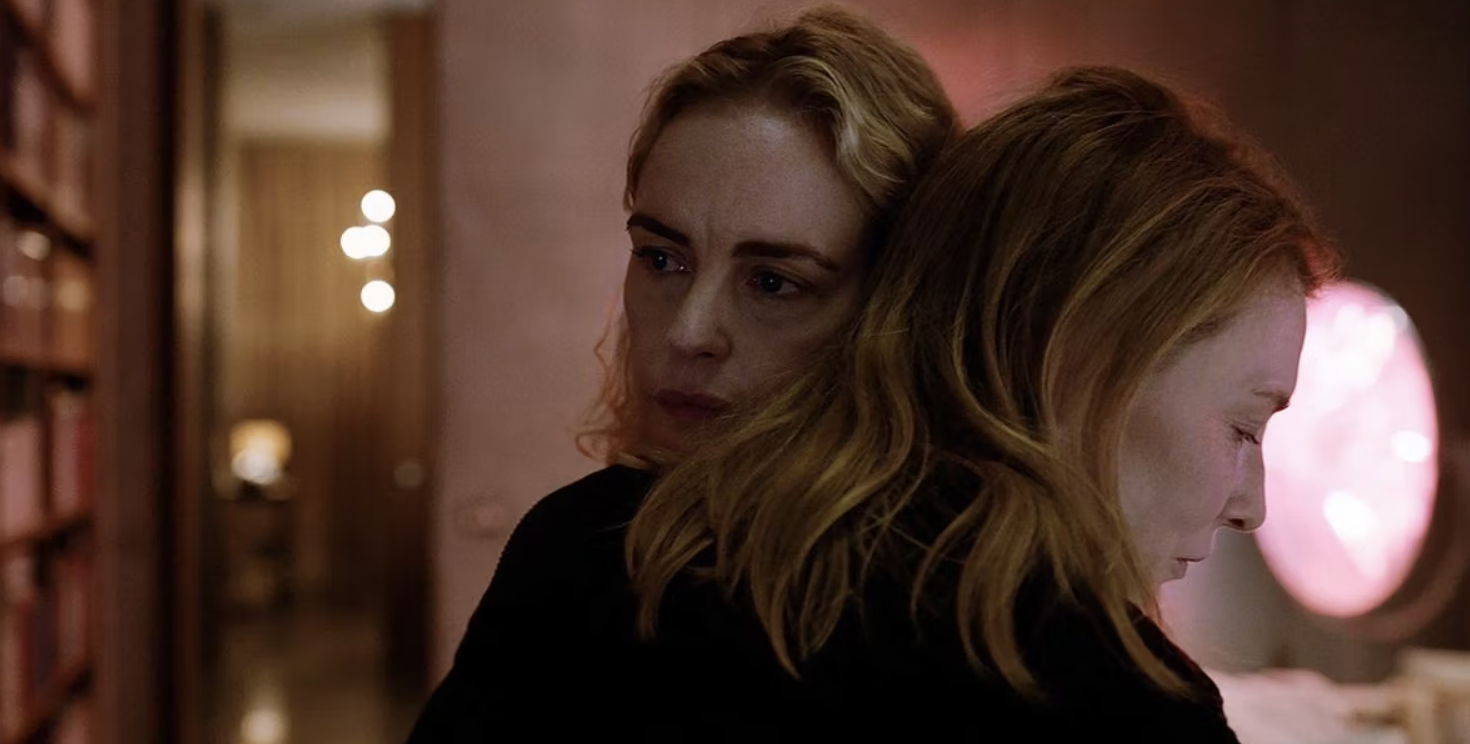“TÁR”; with her commanding turn as an orchestra conductor enamored with Mahler, Cate Blanchett likely moves to pole position for a Best Actress Oscar | OUR REVIEW
Sixteen years later writer and director Todd Field has returned to directing with “Tár,” an artful array of cinematic tics with a strong message concerning the nearly-unwinnable war against the puerile arguments of the cancel culture generation.
Consistently interesting, Field’s screenplay is full of ideas and sharp dissections of the world we live in today, all revealed through a memorable performance from Cate Blanchett.
Lydia Tár is a revered conductor about to finish her masterwork, a live performance of Mahler’s No. 5. A legendary performer, Lydia has an extraordinary sense of hearing, she hears every pitch, the world is musical to her and fuels her latest composition.
In an interview for The New Yorker Tár eloquently delivers cultivated answers. This is a woman who has groomed her public persona and knows how to give the people what they want to hear, appearing as personable and full of knowledge. While the second is certainly true, Lydia looks down on most and with an ego as sharp as her custom-made suits.
Tár takes professional advantage of her assistant Francesca (Noémie Merlant;
“Portrait of a lady on fire”), someone to whom she promises big rewards but who she also resents for not meeting expectations.
In the film’s best scene, Lydia bullies a young Black Juilliard student (Zethphan D. Smith-Gneist) who dismisses “cis white male” composer Johann Sebastian Bach. Her rebuttal to the student’s bizarre statements is justified and true, but her holier-than-thou manner will come back to haunt her. Field shoots the sequence in a single take that captures the frustration of the moment.
The Maestra spends her time between New York City and Berlin, where she lives with her life partner, Sharon (Nina Hoss; “Barbara”), who she obviously loves (Tár has an even tighter bond with Sharon’s young daughter, Petra), but sees her also as yet another distraction.
When talented Russian cellist Olga (Sophie Kauer) enters the picture, Lydia finds herself unhealthily attracted to her—this complicates things.
Cate Blanchett once again proves her supreme skills and status. A specialist of precise method, Field gifts the actress one of the best roles of her career, resulting in her finest work since her Oscar-winning turn in Woody Allen’s “Blue Jasmine.”
This is a performance of gestures and pained facial reactions, such as how Lydia’s disdain for ladder-climbing colleague Elliot Kaplan (Mark Strong in a good performance and a bad wig) is projected through pointed jabs and subtle movements. She knows he wants her job and uses her to get ahead but will not call him out. Professional courtesy? Friendship? Lydia would never tell.
Field is smart not to let the audience in too deeply on Tár’s process and doesn’t paint Lydia as neither saint nor devil, leaving it for the audience to work out whether she is likable. From the film’s first shot (an iPhone screen live-recording a sleeping Lydia while the user texts snide comments to another caller) the tone is set. Lydia Tár is respected professionally but disliked by many, serving only herself.
The screenplay is educated in its knowledge of the world of the conductor and acute in its perception of power and how it can change hands in an instant.
Field’s narrative is quite stunning as he balances the intrigue of the donors and board members, the deceitfulness of an ego-driven mind, and finally, obsession, both erotically and regarding one’s self-interests.
Along with his cinematographer Florian Hoffmeister, the director creates vivid compositions, the rooms and buildings have a stillness to them, the cold feeling of disconnect cutting through Lydia’s moments away from her career.
Field’s film has the ambience of Claude Chabrol, whose precise filmmaking created many cinematic gems surrounding complicated players in philosophical games of social and sexual conundrums. Character studies all, Chabrol crafted many of his works as thrillers.
Field works the same way. His masterful debut as director (2001’s “In the Bedroom) was a tight drama with a potboiler feel while his 2006 “Little Children” was a heartbreaking character study calculated to intense dramatic beats.
“Tár” is infused with the same astute dedication to character while keeping a tight grip on tone.
Where Field’s film hits a dramatic snag is in its depiction of Lydia’s ruination, the screenplay cannot decide if her downfall is deserved or manufactured.
As we watch the character tumble deeper into the crumbling of her life, Field loses his assured hold on the material and the final act becomes a whirlwind of scenes more detached than emotionally potent.
While this unfocused final act does hamper the film, the final shot is a dramatic gut-punch that fully connects with the film’s marvelously-rendered first half.
Through its examination of an unreliable lead character, “Tár” takes on the reality of our times. It speaks to the dangers caused by the demise of privacy and the monstrously erroneous moral pontifications of Gen Z.
While somewhat flawed, Todd Field has given 2022 an immensely adult film that, for a good part of its running time, is completely captivating.
And to Cate Blanchett, we’ll see you on Oscar night.
news via inbox
Nulla turp dis cursus. Integer liberos euismod pretium faucibua



